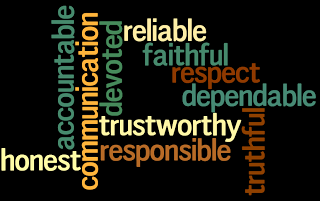
by Julia Felton | Apr 7, 2015
Trust is not an abstract, theoretical, idealistic goal forever beyond our reach. Trust—or a lack of it—is inherent in every action that we take and affects everything that we do. Trust is the cement that binds relationships, keeping spouses together, business deals intact and political systems stable. Without trust, marriages fail, voters become apathetic and organizations flounder. Without trust, no person or company can ever hope for excellence.
The truth is, trust must be carefully constructed, vigorously nurtured and constantly reinforced. Although it takes a long time to develop, it can be destroyed by a single action. And once lost, it is exceptionally difficult to re-establish.
Over the years horses have taught me much about how to build trust. The best lessons probably came from Bunny and Red, two rescue horses that were terrified of people. In order to build their trust I had to demonstrate consistent, credible behaviour. I had to do what I told them I would do, continually following through and also rewarding and acknowledging them for every action they took that enhanced our relationship. The truth is that it took a long time to build trust with these horses, but once formed we had an amazing relationship that still exists today. However, I am all too aware of how fragile that trust is and how easily it could be lost.The same principles for building trust with the horses can be applied to building more trustful relationships in business. Here are 14 things to remember when building trust, adapted from
Follow Your Conscience by Frank Sonnenberg:
1. Be straight with people. Tell it like it is.
2. Don’t be afraid to present bad news. It’s worse to sweep it under the rug.
3. Remain calm, cool and collected during difficult times.
4. Present both sides of an issue. (Let them judge for themselves.)
5. Be a good listener.
6. Disclose potential conflicts of interest.
7. Even a tiny exaggeration can destroy your credibility.
8. Always tell the truth or the truth will tell on you.
9. Your actions “off-stage” (like at an office party or on Facebook) impact your trust and credibility.
10. “Everybody does it” is a poor excuse for doing it yourself.
11. Learn how to disagree without being disagreeable.
12. Repeating a rumor is as vicious as starting one.
13. People will test you in small ways before trusting you outright.
14. The only thing worse than talking about others is talking about yourself.
If you’d like to learn how to build trust in your organisation then I’d be happy to talk with you because it has been shown that the higher the levels of trust in business the more profitable and successful the business can be.
Want to find out where you are most trusted in business, then take the free assessment here.
Julia Felton (aka The Business Wrangler) is the founder of Business HorsePower. Business leaders, entrepreneurs and executives hire her to accelerate their business performance by harnessing the energy of their people to work more collaboratively together. By aligning purpose with actions the team achieves exponential results as everyone starts pulling in the same direction.
Julia believes that business is a force for good and through designing purpose-driven businesses that leverage the laws of nature, and the herd, you can create businesses founded on the principles of connection, collaboration and community that make a significant impact in the world.
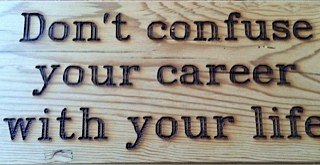
by Julia Felton | Mar 31, 2015
I don’t know about you but when I talk with many of my clients I often find that despite the fact that they are striving for success in their business, they are also engaging in acts that sabotage that success. I know that has been the case for me recently.
I have this picture in my bedroom that says: “Don’t confuse your career with your life”. I brought this when I was working in the corporate world but I have realised that this paradigm is still true for me when I’m running my own business. So many of us get focused on the success of our businesses that we fail to stop and review what is really going on in our lives.
There are definitely situations I am tolerating as a business owner that I would not when I was an employee, and to be truthful some of these are making me miserable. So why am I doing that? Why I am sabotaging my business success?
The irony is that ambition and the desire for success can in fact become the very thing that can sabotage your chances for success.
So, if you’re feeling physically or mentally burned out, there comes a point where you have to ask yourself, Is my career ambition taking over my life?If you don’t want your career ambition to block your own success her are four ways to keep that from happening:
1. Break the multitasking habit.
I have to confess that I’m a work-in-progress when it comes to realizing that multitasking is not my friend. I knew I had a serious problem when one day I looked up and realized that I had a notebook, laptop and iPhone all in front of me, and I was trying to do something different on each of them. Needless to say I wasn’t very productive and ended up with a bunch of partially finished things—not one thing actually completed.
No matter how skilled you think you are at dividing your attention, you really are more effective when you focus and break that Entrepreneurial ADD problem. Don’t jump ahead or try to do it all at once in an effort to save time. You’ll feel more accomplished, building momentum you need to go onto the next task, if you complete just one task at a time.
2. Catch some real Sleep.
Forget what you heard about sleep-deprived super-successful people. Getting no sleep and working through the night is overrated—the all-nighter, “I-only-need-four-hours-of-sleep” bit isn’t something to brag about. Because no matter how late you stay up, if you aren’t productively knocking things off your to-do list, it doesn’t really matter.
And if you’re waking up tired every morning, you will end up cranky and frustrated—and unproductive. Both your mind and your body need that time to rest and recover, to wake up refreshed. It’s not just OK to get that eight hours—it’s necessary to be at your peak, personally and professionally – and that happens when you get uninterrupted, deep sleep.
3. Stop comparing yourself to other people.
I have to confess to be a comparitus addict. I do it all the time, often under the guise of research. Every time I’m on LinkedIn or Facebook, I see what other business owners are achieving and compare myself to them. This then makes me feel bad that I’m not as successful in meeting my goals.
The thing about comparing yourself to others’ achievements is that there is never a win. Someone will always seem to be one step ahead of you. Make a commitment to only compare yourself to the best version of you.
4. Remember to make time for family and friends.
I get it. You’ve found your passion and you’re excited to get to work to make it a reality. You’re so excited and motivated that you’ve forgotten you need to spend quality time with the important people in your life.
Any relationship takes work—contact and communication—in order for it to stay alive, so make some time. You can’t discuss all of the progress you’re making in your career with your computer, and believe me, you don’t want to suddenly realize the only person you’ve had a real conversation with lately is Siri or your horses!. I’ve been told many times by my friends that I just need to take a break, have fun and “turn my brain off.” While I haven’t quite mastered that yet, what I have learned is that I don’t have to figure everything out right now.
So just remember work is just one part of your life and that whatever you are working on can wait for a minute or even an hour or two. Don’t be afraid to turn your brain off and rest and relax.
Julia Felton (aka The Business Wrangler) is the founder of Business HorsePower. Business leaders, entrepreneurs and executives hire her to accelerate their business performance by harnessing the energy of their people to work more collaboratively together. By aligning purpose with actions the team achieves exponential results as everyone starts pulling in the same direction.
Julia believes that business is a force for good and through designing purpose-driven businesses that leverage the laws of nature, and the herd, you can create businesses founded on the principles of connection, collaboration and community that make a significant impact in the world.

by Julia Felton | Mar 24, 2015
Trust “is both a mindset and a toolbox for 21st-century leadership”. Robert A. McDonald, Chairman, President and CEO, The Procter & Gamble Company
In today’s networked world, Trust has become the new currency – the critical competency for individuals, teams, organisations and even countries. Trust impacts every situation and relationship whether personal or professional.
Trust acts like a lubricant. It reduces friction and creates conditions for evolving high performance teams. How well the team works together is the true indicator of future success or the ability to manage through the struggle of relentless change. Without trust there would be no harmony in the team and business and dis-ease would prevail.
When we work in a high trust team things get done quicker and more easily. There is less conflict, less back-stabbing, less politics and more time spent on value added activities like innovative and customer service.
However, trust within teams does not happen overnight. As Joachim Low, the winning German Football Team World Cup coach noted “We’ve been together now for 55 days. We started this project 10 years ago, so this is the result of many years’ work, beginning with Jurgen Klinsmann. We’ve continued that work and our strength has been our constant progress. We’d not made this ultimate step before, but champions do what they will do. We believed we’d win it. We’re looking back over ten years of preparation and hard work. This team has developed a spirit which is unbelievable. We’re proud to be the first European team to win a title in Latin America, in Rio, in Brazil, in a footballing country par excellence… and this makes us proud.”
So what are the four key actions that team members must cultivate if they are to build and maintain trust with their fellow team members:
Commitment
Commitment is an important part of building trust. Every team member must acknowledge they play an important role in creating the success of the team and helping it achieve its goals. When one team member fails to deliver it has a knock on effect on everyone else in the team. This is why no matter if personal or professional obstacles present them team members must seek ways to keep their commitment to the team. Just as they need to rely on others, others must be able to rely on them.
Competence
Team members must trust that their teammates are competent and can successfully complete the tasks relevant to the team’s success. For example, each team member should be able to focus on an assigned task without worrying about teammates following through with their assigned tasks. Individual team members must realize when they need help and ask for it, instead of concealing weaknesses from the group. When team members show vulnerability to their teammates and the teammates respond in an efficient and helpful manner, trust will grow between them.
Communication
Consistent and meaningful communication is necessary for building a trusting relationship within a team. For instance, if a team member finishes a task early, they should communicate to their teammates that they are finished and ask if they can help another team member with their part of the work. If one team member discovers vital information that is relevant to the team’s success, such as a deadline change or a lack of resources, they should communicate it to the other members as soon as possible.
Collaboration
True collaboration won’t happen without a sense of trust between team members. When team members collaborate, they share creative ideas without fear that another team member will take credit for their ideas. Through collaboration innovative ideas are born. It is definitely a case of 1+1=3. When team members trust each other they are more likely to show their vulnerability, which in turn will build more trust within the team.
In summary trust anchors every successful team. When team members demonstrate commitment, competency, communication and collaboration then others will trust them and superior performance will result both in terms of productivity and profitability. However, when a team is forming who do you trust? In the words of Ernest Hemingway “The best way to find out if you can trust somebody is to trust them.”. Building trust is a two way street as you need to give trust in order to get it.
Julia Felton (aka The Business Wrangler) is the founder of Business HorsePower. Business leaders, entrepreneurs and executives hire her to accelerate their business performance by harnessing the energy of their people to work more collaboratively together. By aligning purpose with actions the team achieves exponential results as everyone starts pulling in the same direction.
Julia believes that business is a force for good and through designing purpose-driven businesses that leverage the laws of nature, and the herd, you can create businesses founded on the principles of connection, collaboration and community that make a significant impact in the world.
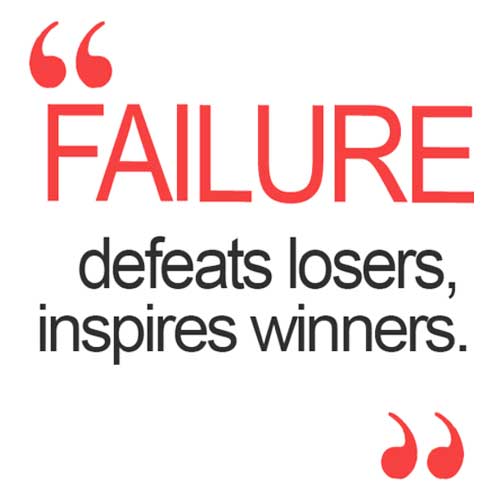
by Julia Felton | Mar 17, 2015
Thomas J. Watson, the founder and first president of IBM said: “Failure is a teacher – a harsh one, perhaps, but the best… That’s what I have to do when an idea backfires or a sales program fails. You’ve got to put failure to work for you … you can be discouraged by failure or you can learn from it. So go ahead and make mistakes. Make all you can. Because that’s where you will find success. On the far side of failure.”
I know when I was starting out in business I used to dread getting things wrong and having projects fail. I used to think that failure was something bad, to be avoided, but along the way I have begun to realise that my best lessons are learnt when I try something and it doesn’t turn out as planned. In effect I’ve failed but the feedback I get is priceless and it helps me calibrate my offering and do something different.
Recently I read an article about the African impala. They can jump to a height of over 10 feet and cover a distance of greater than 30 feet and yet these magnificent creatures can be kept in an enclosure in any zoo with a 3 foot wall. The reason is that these animals will not jump if they cannot see where their feet will land.
This is a lot like humans. Many of us will not live up to our full potential and achieve all we want to as we are afraid to take a risk. We are afraid to fail as society has conditioned us that failure is bad. That was certainly the messaging that I got as a chlld, however failure can be one more step on your road to success – you just have to turn it around in a positive direction. Failure can push you harder to succeed. Failure can strengthen your determination to overcome obstacles. Failure can make you braver in the face of opposition. Failure can help you learn what you need to do in order to succeed. Failure can teach you what your limitations are – and your strengths. Failure can encourage you to change your strategy.
“Failure is not an option” became a popular catchphrase after the release of the movie Apollo 13. Failure happens, but when you’re responsible for the people working for you, you have to do everything you can to guard against it.
As a leader, devote yourself to avoiding these crucial failures in leadership.
- Disconnecting from people. Don’t get so caught up in strategy and planning that you forget to talk to the people who work for you. Most of the time, they know more than you about how things work from the ground level, and their insights can be invaluable.
- Doing too much. Delegate appropriately so you don’t get overwhelmed and lose sight of the big picture. When you hire, look for people who can perform aspects of your job as well as or better than you can. Your role is complicated enough without adding tasks that your team should be able to handle.
- Avoiding risk. Play it safe, and your organization will never grow. That doesn’t mean being foolhardy with your organization’s assets. Seek opportunities everywhere, and be willing to commit resources wherever you’ve got a reasonable chance of success.
- Exhaustion. Take care of yourself, physically and mentally. Eat well, exercise, and take time off so you can stay fresh as you confront the day’s challenges. Pushing yourself to the brink will only increase everyone’s anxiety.
- Falling in love with authority. You’re the boss, not a monarch ruling by birthright. Don’t rely on your title, and the volume of your voice, to get employees to do what you want. Base your decisions on your experience and judgment, and be willing to listen to other points of view instead of assuming that only you know what’s right.
When J. K. Rowling, author of the phenomenally successful Harry Potter series, had been out of college for seven years, she found herself at a dark juncture in her life. At that time, she says, she had failed in life on an epic scale. “An exceptionally short-lived marriage had imploded. I was jobless, a lone parent, and as poor as it is possible to be in modern Britain without being homeless.”
In short, Rowling says she was the biggest failure she knew. And while she says there is nothing ennobling about being poor, she believes she reaped benefits from her failures. Failure, she says, stripped away all the inessential aspects of her life. She stopped pretending to be anything other than herself, and it was then that she began to earnestly pursue the only work that mattered to her. It was not, she says, the fairy-tale transformation to success so often written about her in the media.
And one thing I have learnt is that becoming successful – whatever that means for you – is never something that happens overnight. Despite all the media hype success takes hard work because it takes 10,000 hours to perfect your craft. So imagine the opportunity for failure along the way and embrace this and learn from the experience because this will help accelerate your success.
So what leaps of faith will you take today to move your business to the next level?
Julia Felton (aka The Business Wrangler) is the founder of Business HorsePower. Business leaders, entrepreneurs and executives hire her to accelerate their business performance by harnessing the energy of their people to work more collaboratively together. By aligning purpose with actions the team achieves exponential results as everyone starts pulling in the same direction.
Julia believes that business is a force for good and through designing purpose-driven businesses that leverage the laws of nature, and the herd, you can create businesses founded on the principles of connection, collaboration and community that make a significant impact in the world.

by Julia Felton | Feb 24, 2015
In a recent article the Harvard Business Review cited the following as traits of innovative leaders. I’m curious what you think about these traits and are there any you would add.
Many organisations would like their leaders to create more innovative teams. But how exactly should they do this? Most highly innovative leaders can often find it difficult to pinpoint what accounts for their skill. Research carried out by US –based leadership development consultants Jack Zenger and Joseph Folkman identified 10 distinctive behaviours that set innovative leaders apart.
These leaders:
- Display excellent strategic vision. The most effective innovation leaders could vividly describe their vision of the future
- Have a strong customer focus. They networked with clients and asked incessant questions about their needs and wants.
- Create a climate of reciprocal trust. They initiated warm, collaborative relationships with the innovators who worked for them.
- Display fearless loyalty to doing what’s right for the organisation and customer. Pleasing the boss took a back seat to doing the right thing for the project.
- Put their faith in a culture that magnifies upward communication. These leaders were often described as projecting optimism, full of energy, and always receptive to new ideas.
- Are persuasive. They presented ideas with enthusiasm and conviction, and the team willingly followed.
- Excel at setting stretch goals. They set goals that required people to go far beyond just working harder but required that they find new ways to achieve a high goal.
- Emphasize speed. These leaders believed that experiments and rapid prototypes were preferred to lengthy studies by large committees.
- Are candid in their communication. These leaders were described as providing honest, and at times blunt, feedback.
- Inspire and motivate through action. This comes from a clear sense of purpose and meaning in the work.
So do you have the skills and mindset as a leader to create innovative teams? I’d love to hear if you’d focus on anything different.
Julia Felton (aka The Business Wrangler) is the founder of Business HorsePower. Business leaders, entrepreneurs and executives hire her to accelerate their business performance by harnessing the energy of their people to work more collaboratively together. By aligning purpose with actions the team achieves exponential results as everyone starts pulling in the same direction.
Julia believes that business is a force for good and through designing purpose-driven businesses that leverage the laws of nature, and the herd, you can create businesses founded on the principles of connection, collaboration and community that make a significant impact in the world.

by Julia Felton | Feb 17, 2015
Just as business follows the seasons it follows that team members who are part of the business also have a rhythm. This is called this your personal rhythm. I’m sure each of you can identify certain times in the day when you are most productive. If you’re like me you might be a morning person. I do my best work first thing in the morning – that is when I’m most creative. My low point is usually around lunchtime and then I tend to get a burst of energy in the evening.
Joined Up Business Leaders appreciate that each team member has their own rhythm and so allow flexible working hours. This means that if you are a morning person you can come in early and leave early or if you are more of an evening person you simply don’t come into work until lunchtime and then you work later into the evening.
Operating a flexible work schedule like this means that there must be trust between all parties that the work will get completed. Also, good communication is required by team members to ensure that there is always sufficient coverage within the team to meet the customers’ needs. And, with business becoming more global than ever, there is a distinct business competitive advantage to having office coverage for more than just the traditional work hours, as you can then more easily service the demands of clients across borders.
In addition to the personal rhythm to your day, there is also a personal rhythm to the year. Just like nature goes through the seasons, your own body passes through the seasons – having times when your energy level is high and times when you energy level is low.
Vacations are designed to help team members unplug and rest and recuperate. They are the equivalent of the winter season on the farm. They are required so that team members can come back with more energy and focus. Yet according to a March 2012 survey of 952 employees for the job and career site Glassdoor, some 15% of U.S. employees who are entitled to paid vacation time haven’t used any of it in the past year.
Ignoring vacations is a deadly short-term tactic, harming long-term business health.A division of Computer Sciences Corp. (CSC) lost 80% of its revenue, and employees, as burn-out drove people away. Unused vacation days is a simple metric of a company culture that values short-term benefits over long-term performance, and a culture that supports fear over results.
Recently, Richard Branson, founder and chairman of the Virgin Group, instigated a “non-policy” for paid time off. This decision means that all of Virgin’s team members in the company’s main offices in the U.S. and the U.K. now have open-ended access to vacation time. Branson got the idea from Netflix, another early adopter of the vacation non-policy, along with several other tech firms like Zynga, Groupon, Evernote, VMware, Eventbrite, and HubSpot.
Here are three reasons why team members actually get more done when they have open-ended access to vacation time:
- It makes team members less anxious if they have to take time off for family reasons
- It implies trust which breeds responsibility
- It makes people happier and want to work harder
I’d love to hear what policies there are in place at your workplace regarding vacation policy. As always feel free to email me or leave your comments on the facebook page.
Julia Felton (aka The Business Wrangler) is the founder of Business HorsePower. Business leaders, entrepreneurs and executives hire her to accelerate their business performance by harnessing the energy of their people to work more collaboratively together. By aligning purpose with actions the team achieves exponential results as everyone starts pulling in the same direction.
Julia believes that business is a force for good and through designing purpose-driven businesses that leverage the laws of nature, and the herd, you can create businesses founded on the principles of connection, collaboration and community that make a significant impact in the world.

by Julia Felton | Feb 4, 2015
This past week I’ve been working with several clients helping them to create their dream business and 90 day marketing plan. And one of themes that has continually come up of it is that when it comes to marketing our businesses we very often take the easy option.
I know so many of are telling me that you don’t have enough hours in the day to get everything done, and whilst I know that might feel true, the real reason is due to the fact that you are not focusing on income generating activities and being visible in your business.
Hey, I get it. Often it is easier to think we are being productive by hiding our behind our computer and doing activities such as:
- Updating your website
- Posting a status update to social media
- Writing a new article
However, your business is going to succeed and prosper if you grow by getting out of your comfort zone and doing something different. Remember the old Einstein saying:
“We cannot solve our problems with the same thinking we used when we created them“
So if you want to grow your business you’ll need to learn to step out of your comfort zone. Activities that might be out of your comfort zone include:
- Reaching out to a potential referral partner
- Attending a networking event
- Speaking either online or in-person
The technology we have available to us is making it easy for us to take the easy option; but yet make us feel like we’re marketing. Hence, the frustration with lack of results.
Whereas the most effective forms of marketing, especially for professional service providers, is all about personal connection and building relationships. Which means you have to take a step out of your comfort zone to do it.
So my challenge to you this week is how can you mix up your marketing so that you’re combining easy with the more challenging marketing activities? Post your comments on facebook at let me know.
Julia Felton (aka The Business Wrangler) is the founder of Business HorsePower. Business leaders, entrepreneurs and executives hire her to accelerate their business performance by harnessing the energy of their people to work more collaboratively together. By aligning purpose with actions the team achieves exponential results as everyone starts pulling in the same direction.
Julia believes that business is a force for good and through designing purpose-driven businesses that leverage the laws of nature, and the herd, you can create businesses founded on the principles of connection, collaboration and community that make a significant impact in the world.
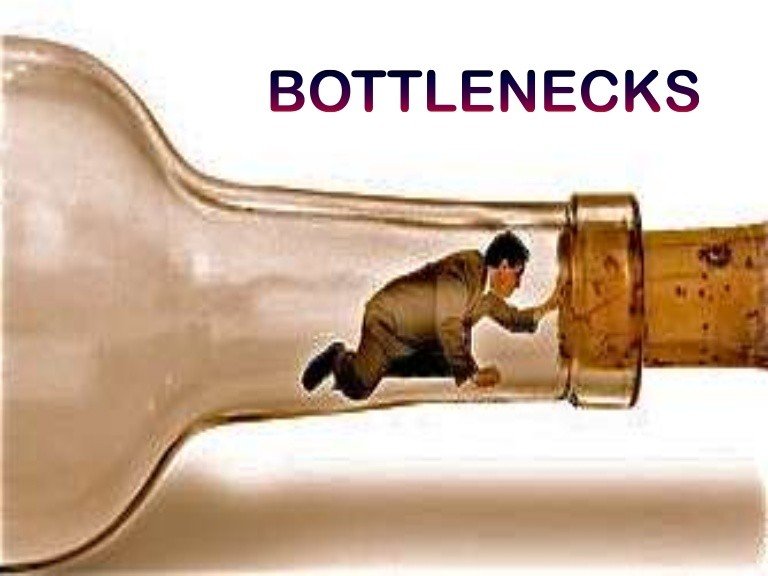
by Julia Felton | Jan 27, 2015
How often have you twiddled your thumbs, waiting for someone to get you information or permission to proceed? I know that for me that can happen a lot and it can be super frustrating.
You could get so much done if it weren’t for other people, right?
I know it often feels that we can get more done on our own but quite simply that isn’t true. Our team members have valuable skills that we don’t have and we need them to be successful. However, when someone doesn’t deliver on time this creates roadblocks as there is work we can’t complete until someone else completes their work. You can’t paint a wall until someone builds it.
These dependencies can create bottlenecks in an otherwise seamless workflow. Unless you want to drown in frustration, you’ll want to actively clear any dependencies that slow the workflow — and you may discover that the bottleneck is as frustrated about the situation as you are.
For example, one of my client’s teams was responsible for producing several lengthy technical reports each month, but it had one overworked editor. The entire group’s productivity was limited until an assistant was hired to lift the purely administrative tasks from her plate.
So here are my best tips on how to get things rolling again when bottlenecks occur.
1. Keep lines of communication open
Make sure your team members know you depend on them. It won’t help to sit there and seethe, only to discover the other person had no idea you were waiting for them to get back to you.
2. Make your needs clear
Tell your team members precisely what you need and when. Don’t beat around the bush: Keep your communications crystal clear, with fair expectations and milestones, emphasizing accountability.
3. Get their buy-in
Once you’ve told team members what you need, get buy-in on the due date. Let them see you write it down or send an official task request. This commits them to action, making them less likely to lose track of it.
4. Offer help
Let your team members know you’re there to help if a problem arises. If someone seems stalled or repeatedly fails, point it out and ask about the pattern. There may be obstacles you’re unaware of that are preventing a timely response, or the person might need help with organization.
The above steps will force most team members into action—and some will be grateful for the help. If nothing else works, develop a workaround, put a corrective action plan in place, or hire a contractor for the task at a site like www.elance.com or www.fiverr.com. These aren’t ideal solutions, but you can’t let someone else hold you back.
Action step:
Keep track of dependencies as they arise during the course of your work. Face them head on, instead of avoiding them or falling into frustration. You can’t allow anyone to slow down the whole operation, so clear any bottlenecks as soon as they appear. In your next team meeting, discuss what slows them down.
Julia Felton (aka The Business Wrangler) is the founder of Business HorsePower. Business leaders, entrepreneurs and executives hire her to accelerate their business performance by harnessing the energy of their people to work more collaboratively together. By aligning purpose with actions the team achieves exponential results as everyone starts pulling in the same direction.
Julia believes that business is a force for good and through designing purpose-driven businesses that leverage the laws of nature, and the herd, you can create businesses founded on the principles of connection, collaboration and community that make a significant impact in the world.

by Julia Felton | Jan 27, 2015
Whether you are a business owner or an employee it is essential that you find the right person or job role that is a match for you. I know given the tough economic conditions we’ve been through recently that it is tempting for a candidate to apply for any job for and for recruiters who needs to find resource to accept a less and ideal candidate.
Stop. This is such a flawed strategy for both parties and ultimately ends up costing everyone valuable time, energy and money as:
- The candidate ultimately won’t enjoy the job. Sure they might be able to do the role, but are they giving 110% to it. If the role is not aligned to their own passion and purpose they simply won’t be as productive or creative in the role as they could be.
- For the business owner they are not utilizing the team members best strengths and so ultimately the productivity and engagement of the team member declines and the net result is less profitability for the business.
What both parties crave for is a situation where the team member is working to their strengths, and delivering massive value to the business . This occurs when the team member is in a state we call flow. Put simply, flow is the path of least resistance. When team members are in flow, productivity rises, results increase, occurrences line up, everyone has more fun and feels more connected to the organisation and it’s goals.
When a team member is in flow they feel energised, focused and fully engaged in the task at hand. Often there can be a distortion of time as their internal clock does not seem to match the external clock – perhaps you have experienced this when you have been doing something you love and time just literally seems to fly by. That’s a time that you were in flow.
So how do you know if you are in flow:
- If you are feeling stressed, overwhelmed or anxious, then it’s a fairly good indicator you are out of Flow.
- The opposite is true when you are in Flow, you feel joy and even rapture whilst performing the task. In the work place, this results in a harmonious environment.
The challenge I come across time and time again are team members that are in the wrong roles. They are not playing to their strengths and as a result the are sabotaging the success of the business. This is not usually intentional it is just that unless you are in flow you are unlikely to be able to access the hidden 90% of your potential that exists.
Imagine the benefits if all your team members were operating at or above their peak performance level. Imagine what an impact that would have both on the motivation of the employee but also on the organizational results. Customers would feel more cared for, projects would get delivered on time and the harmony in the workplace would be infectious. This is the type of workplace where trust pervades as everyone is doing their role to their very best.
One tool that I use to help my clients and their business get into flow is something called Talent Dynamics. Based on an ancient Chinese philosophy, the I Ching, it allows each person in a team or organisation to understand the quickest and easiest way for them to get into and stay in Flow by working with their strengths. It also helps them understand where they are most able to add value to the organisation. Simply, by understanding the value you contribute to a team, then you can immediately help identify potential Business Development opportunities.
If you manage a team then by profiling your whole team you can create mutual understanding and get the whole team into flow. Understanding the strengths of team mates and how they contribute and add value to the business allows you to better communicate and it is easier to gain trust and respect with each other and so deliver results in performance and profitability.
So whether you’re a business owner or a candidate make sure that you find the perfect role for you – one that speaks to your strengths and where you can add real value.
The first step to finding out your strengths is to identify where you are most trusted in business. You can take the quick 30 second assessment at http://bit.ly/trusttest.
Julia Felton (aka The Business Wrangler) is the founder of Business HorsePower. Business leaders, entrepreneurs and executives hire her to accelerate their business performance by harnessing the energy of their people to work more collaboratively together. By aligning purpose with actions the team achieves exponential results as everyone starts pulling in the same direction.
Julia believes that business is a force for good and through designing purpose-driven businesses that leverage the laws of nature, and the herd, you can create businesses founded on the principles of connection, collaboration and community that make a significant impact in the world.
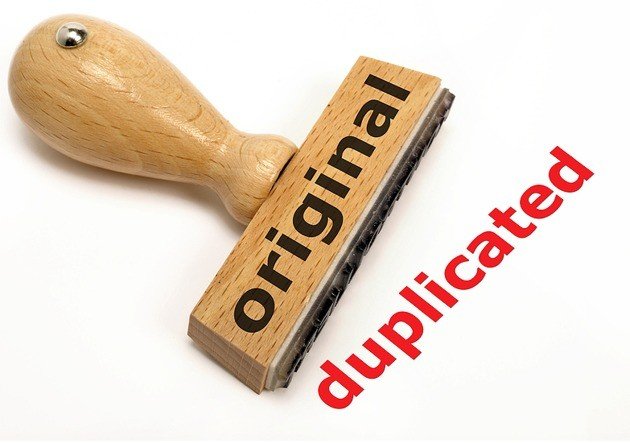
by Julia Felton | Jan 22, 2015
This week I’ve been thinking a lot about productivity. You see it just frustrates me at the amount of time, energy and resources we waste simply because we are not effective and productive and don’t have Joined Up Business practices in place.
For me it has been one of those weeks. It has seemed like I have not been in control of my schedule. I fell victim to reacting to everyone else’s agenda rather than pro-actively leading my business, and the result is that I’ve been left feeling frustrated that I have not achieved all the things that I wanted to do.
Being a proactive leader of your business and grabbing the reins is so important to ensure success and yet there are times when life seems to take over. For me this week it has been the ongoing saga with my website that my hosting company took down for nearly 30 hours, just when I was in the middle of a launch!!! Exasperated does not described how I felt. Now they acted in good faith because my site was being hacked by bots that were impacting the performance of other website on the server, but still that didn’t help me.
So faced with having wasted loads of time sorting out this issue I found myself up against a few tight deadlines to get work completed. It is then that I remember that old trick that really successful and productive people engage in everyday. They practice R&D! No not Research and Development (although I bet they do some of that) but rather Replicate and Duplicate.
When you replicate and duplicate you become super productive as you leverage all the work that you have done before. By simply re-purposing old content you can instantly create new products and services.
For example:
- If you have a talk you deliver frequently turn it into a book
- Convert a book into a workshop
- Take a workshop and develop a coaching programme around it
In this way one piece of effort leads to at least three new offerings.
And of course you can take content from two or three sources and then combine them to create something completely new. That’s what I’ve done this week to enable me to create a article for a magazine by their deadline. I’ve re-purposed and re-packaged some of my earlier work. And I have to say the end result is pretty remarkable.
So how can you maximize your efforts by building new products and services on what you are already doing?
I’m betting you already have a deliverable core to your business and your customers’ needs. Now let’s turn it into a variety of new offerings by plagiarizing…re-purposing … sections from your original work.
Less work. More money. Take this action this month and reap the benefits…income…all year.
If you’d like to more about how to be more productive and effective in your business mark your calendar for Weds 4th Feb when I will be hosting a complimentary training call and sharing some of my best productivity strategies.
Julia Felton (aka The Business Wrangler) is the founder of Business HorsePower. Business leaders, entrepreneurs and executives hire her to accelerate their business performance by harnessing the energy of their people to work more collaboratively together. By aligning purpose with actions the team achieves exponential results as everyone starts pulling in the same direction.
Julia believes that business is a force for good and through designing purpose-driven businesses that leverage the laws of nature, and the herd, you can create businesses founded on the principles of connection, collaboration and community that make a significant impact in the world.
















